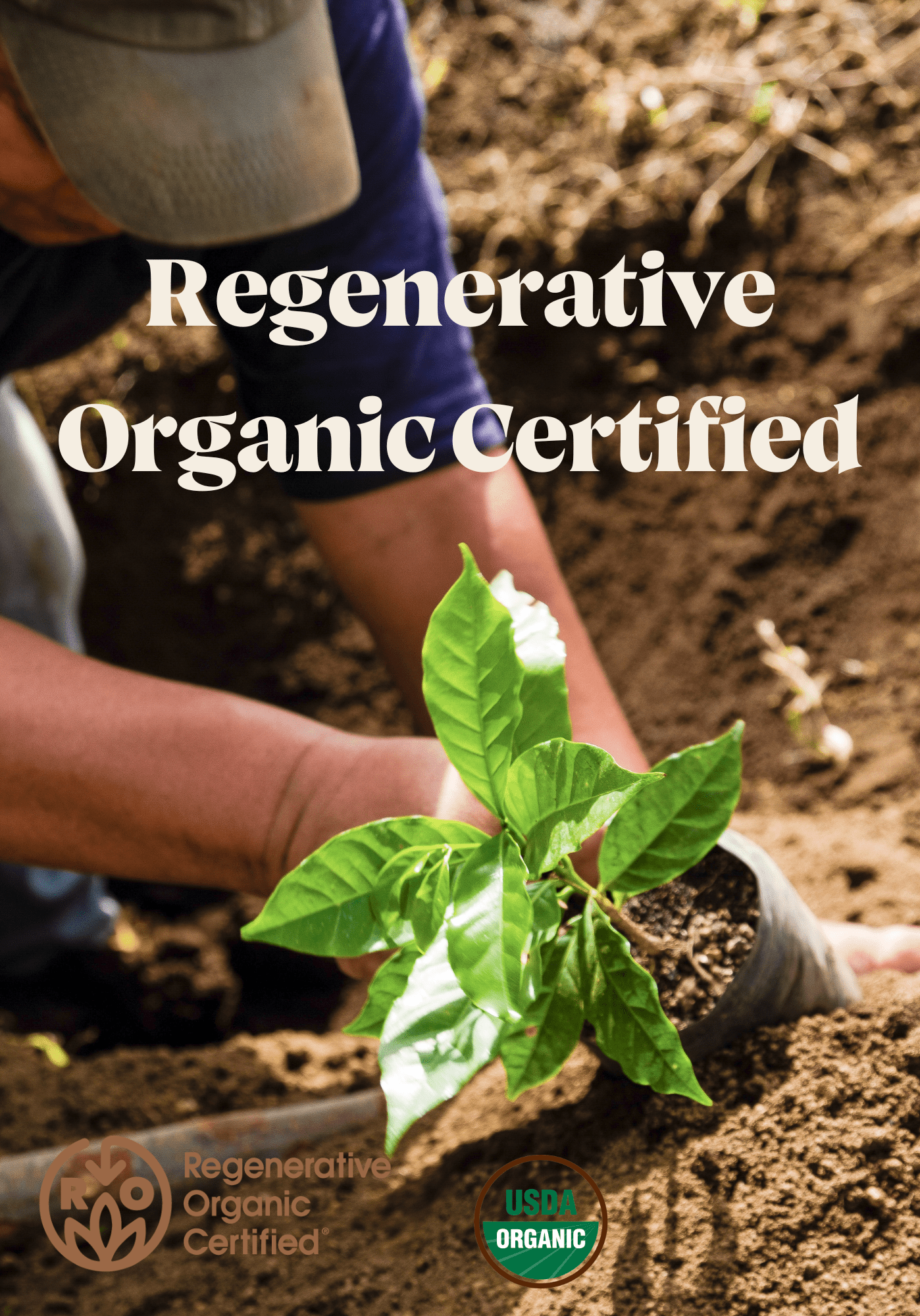
Understanding the Waves of Coffee
The coffee industry has undergone several transformations, commonly referred to as "waves." The first wave brought us mass-produced coffee, accessible to everyone. The second wave introduced us to specialty coffee, emphasizing quality and experience. The third wave elevated coffee to a culinary art form, with baristas perfecting pour-overs and other artisanal methods.
The next wave of coffee has been something many people have tried to categorize over the past decade, but we feel—and many agree—that now we are entering that elusive fourth wave, characterized by a focus on health and sustainability. This wave is not just about the end product but also about the journey from farm to cup, emphasizing the importance of regenerative agriculture.
The Problem with Mono-Crop Farming
Traditional coffee farming practices often involve mono-cropping, where a single crop is grown over a large area. This method, while efficient for production, has severe environmental drawbacks:
- Lack of Biodiversity: Mono-cropping leads to a loss of biodiversity as large areas of rainforest are cleared to make way for coffee plantations.
- Soil Degradation: Without a variety of plants to maintain soil health, the soil loses its ability to retain water, leading to increased runoff and soil erosion.
- Chemical Runoff: The use of pesticides and fertilizers in mono-crop farms often leads to harmful chemicals leaching into surrounding ecosystems.
Moving Towards Sustainable Coffee: Fairtrade and Direct Trade
Efforts to mitigate the negative impacts of coffee farming have led to initiatives like Fairtrade and Direct Trade:
- Fairtrade: This certification attempts to help coffee producers receive a fair wage. However, it doesn’t always address the environmental impact of farming practices and can sometimes lock farmers into selling their crops below market price.
- Direct Trade: While not regulated, this term refers to specialty coffee roasters who buy coffee directly from farmers, often resulting in better quality coffee and improved farmer relationships.
While these efforts are helpful, there has not yet been a way to regulate all aspects of sustainable farming, until ROC ®.
The Rise of Regenerative Organic Certified® (ROC®) Coffee
Regenerative Organic Certified® (ROC®) coffee represents a shift towards sustainable and health-focused farming practices. ROC® goes beyond traditional organic standards to promote biodiversity, soil health, and ecosystem restoration.
Benefits of ROC® Coffee:
- Biodiversity at the Farm Level: ROC® farms cultivate a variety of crops, including timber canopy trees, bananas, guava, and citrus. This diversity supports healthier ecosystems.
- Improved Soil Health: ROC® practices enhance soil structure with deeper roots and better moisture retention, reducing runoff and erosion.
- Wildlife Support: A biodiverse environment attracts wildlife, helping to balance the ecosystem and promoting carbon sequestration.
- Carbon Neutral to Carbon Negative: ROC® farming methods actively pull carbon from the atmosphere, storing it in the soil and plants, making these farms carbon neutral or even carbon negative.
- Enhanced Farmer Livelihoods: Diverse crops provide additional sources of income for farmers, promoting economic stability, additional jobs, and resilience.
Health Benefits of ROC® Coffee
Coffee grown in nutrient-rich, regenerative soils is not only better for the environment but also for our health. Studies suggest that such coffee is richer in beneficial compounds, including antioxidants and essential nutrients.
- Antioxidants: Coffee is a rich source of antioxidants, which help fight inflammation and protect cells from damage.
Embracing the Fourth Wave: A Movement Towards a Better Tomorrow
As coffee continues to progress as a product and industry, the emphasis on regenerative agriculture and sustainable practices signifies a commitment to a healthier planet and healthier people. By supporting ROC® coffee, consumers can enjoy a superior coffee experience while contributing to the well-being of farmers and the environment.
Organic certification is a prerequisite for ROC®, ensuring that no chemicals are used for at least three years. This stringent standard guarantees that the coffee you enjoy is grown in harmony with nature.
The fourth wave of coffee represents a significant evolution in how we think about our favorite beverage. By focusing on health and sustainability through regenerative agriculture, we can enjoy a better cup of coffee and a healthier planet. Join the movement and savor the benefits of ROC® coffee, where every sip supports a brighter future for us all.
